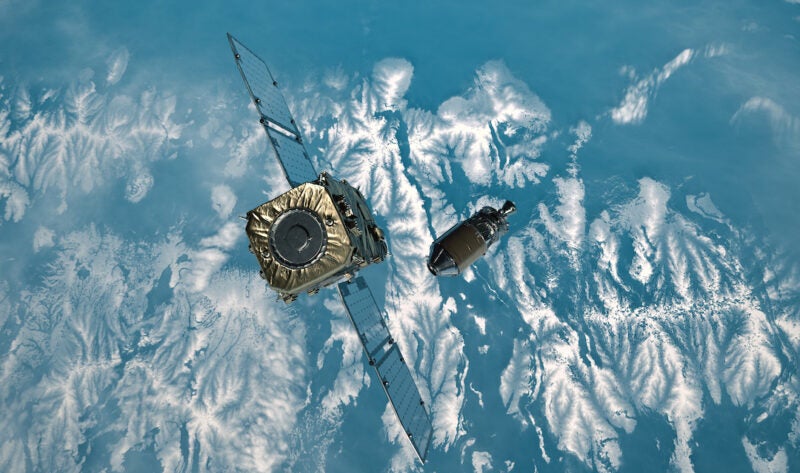Latest News

A rendering of Astroscale’s ADRAS-J mission, which is similar to a new award from the Japanese government. Photo: Astroscale
Astrocale Japan reached a technical milestone involving its commercial debris inspection demonstration satellite, Active Debris Removal by Astroscale-Japan (ADRAS-J). The company said Thursday that it completed the rendezvous phase of its mission and the beginning of proximity approach. This success is underscored by starting Angles-Only Navigation, a navigation method to estimate relative position and velocity through the servicer’s on-board cameras.
The ADRAS-J spacecraft was selected by the Japan Aerospace Exploration Agency for Phase I of its Commercial Removal of Debris Demonstration program. Astroscale Japan is responsible for the design, manufacture, test, launch and operations of ADRAS-J. ADRAS-J aims to safely approach, characterize and survey the state of an existing piece of large debris through Rendezvous and Proximity Operations (RPO). Following the proximity approach phase, ADRAS-J will attempt to execute a fly-around, capturing crucial images and data to assess the rocket body’s movement and condition of the structure. The mission could herald a new era in RPO missions, paving the way for future on-orbit services while laying the foundation of a sustainable space environment. The mission is slated for completion by the end of May 2024.
During the rendezvous phase, ADRAS-J initiated its approach through several orbit raising maneuvers at a distance of thousands of kilometers from the client rocket upper stage. The upper stage, which was launched in 2009, is an unprepared object that does not provide any GPS data on its own, meaning the precise location needed for an RPO mission is not available. Based on limited information available from ground-based observations, the Astroscale operations teams in Japan and the United Kingdom successfully maneuvered the ADRAS-J servicer within several hundred kilometers of the rocket upper stage. ADRAS-J’s visual camera then successfully detected the client, and its images were processed using Astroscale-developed Angles-Only Navigation algorithms.
“Starting Angles Only Navigation is a huge milestone for the ADRAS-J mission, highlighting the expertise and teamwork among Astroscale teams in Japan, the UK, and the US. This brings us one step closer to further advancing our RPO capabilities and our understanding of space debris, reinforcing our commitment to the sustainable development of space,” Eijiro Atarashi, ADRAS-J Project Manager at Astroscale Japan, said in a statement.
Get the latest Via Satellite news!
Subscribe Now